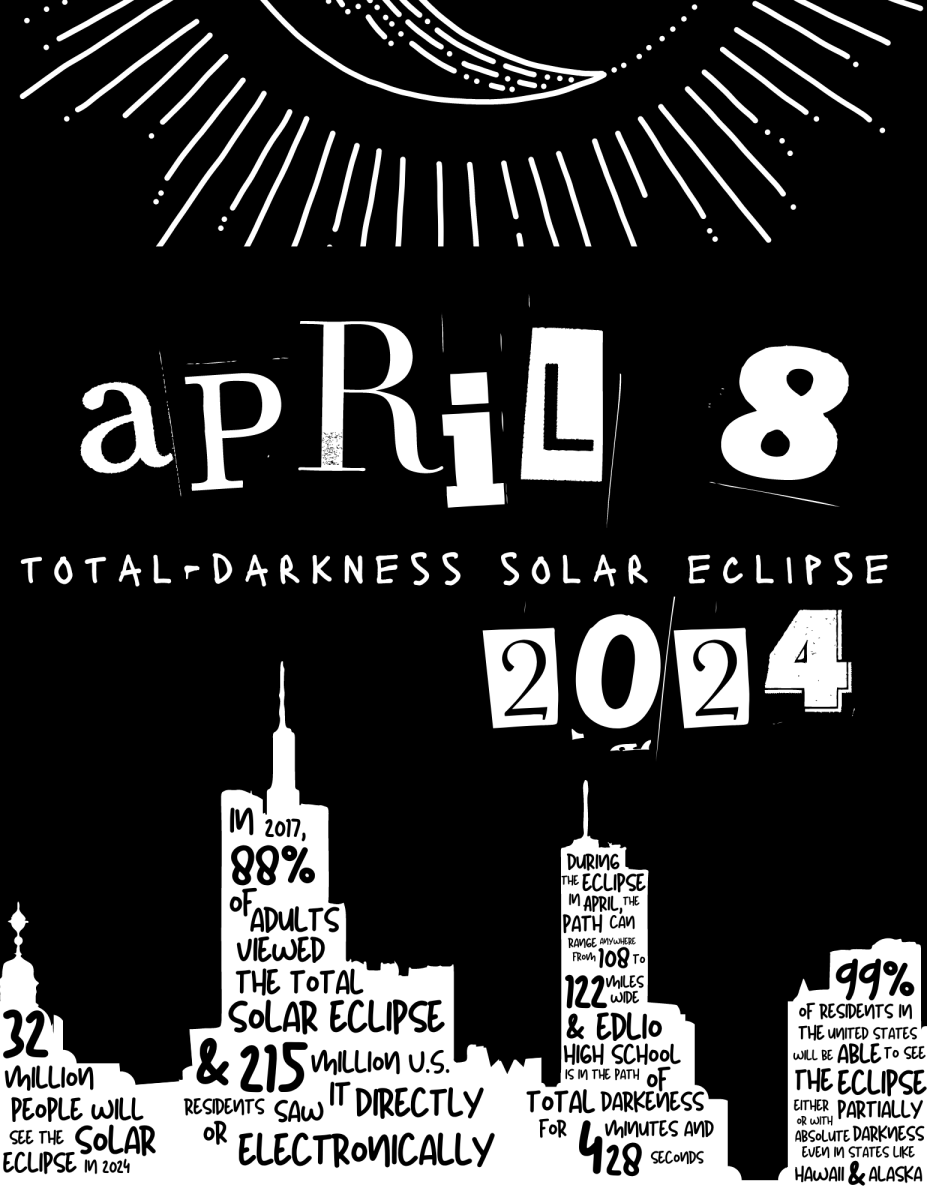As I sat through my physics class with the one and only Mr. Nathan Rassi, my head rested on my palms and I struggled to keep up with the notes. If you’ve ever been in Rassi’s class, you know that he keeps his class engaging but he’s notorious for his off-topic tangents.
This particular day, his tangent happened to be about the upcoming solar eclipse on April 8, and he was quite irritated that we wouldn’t have school off. As I sat and nodded monotonously, he droned on and on about how it was a “once-in-a-lifetime” experience and we “wouldn’t have enough time to get down to Carbondale” before total darkness.
I didn’t really think I cared. I normally don’t.
Then, I vaguely remembered a memory from August of 2017, when I spent the day on my cousin’s lawn gazing up at the sun with silly glasses. Back in 2017, my family drove to Columbia, Missouri, to view partial darkness for two minutes. After driving two hours for two minutes of darkness, I felt like it was going to be a waste of time.
But when you see the world go dark at 3 p.m. on a Monday afternoon, that changes. It no longer felt like a waste of time: it felt like an invaluable experience that I was lucky to encounter.
Solar eclipses are extremely rare, occurring only when the Moon’s orbit is five degrees from the sun. This April will be the last solar eclipse, in this lifetime, that Illinois will be in the path of totality. For four minutes and 28 seconds, Carbondale will be completely dark.
At exactly 1:58 p.m., Carbondale will be pitch black. And at 1:58 p.m., Edwardsville’s students will be racing into the parking lot, fighting to get home before 2 p.m. and missing a once-in-a-lifetime experience.
Triad High School will be enjoying this opportunity from the comfort of their homes, or if they’re interested enough, from the grounds of Carbondale. Other schools in our area join them in giving students the day off, but Edwardsville is late to the train.
Hundreds of people will travel to Carbondale from hours away, and we’re within reach. It’s not improbable, and many students will opt to stay home from school anyway. And they should— they need this opportunity to stay at home to observe, learn and understand it.
In addition to students staying home, I will certainly be shocked if I walk into my fourth-hour physics class and I see Mr. Rassi there. He will be taking the day off to share this incredible experience with his children. It’s not just children who need to observe this: it’s our teachers too. A solar eclipse is an astronomical phenomenon, and we all deserve the opportunity to view it from wherever we see fit.
Taking a day off of school will allow students the opportunity to not just view the eclipse, but to view it safely. Guidelines from the Toronto School District suggest that everyone wear “special viewing glasses” to view the solar eclipse and not to look at the sun directly or through a camera lens.
If the plan included keeping schools open so classes can view the eclipse together and learn about it, I’d be all for it. But we certainly know that’s not the case. As dedicated as my teachers are to learning, this isn’t everyone’s passion. As for Mr. Rassi, who’s truly passionate about the solar eclipse, he’s already informed us he won’t be at school.
He’ll be experiencing this once-in-a-lifetime event. And I will, too.


